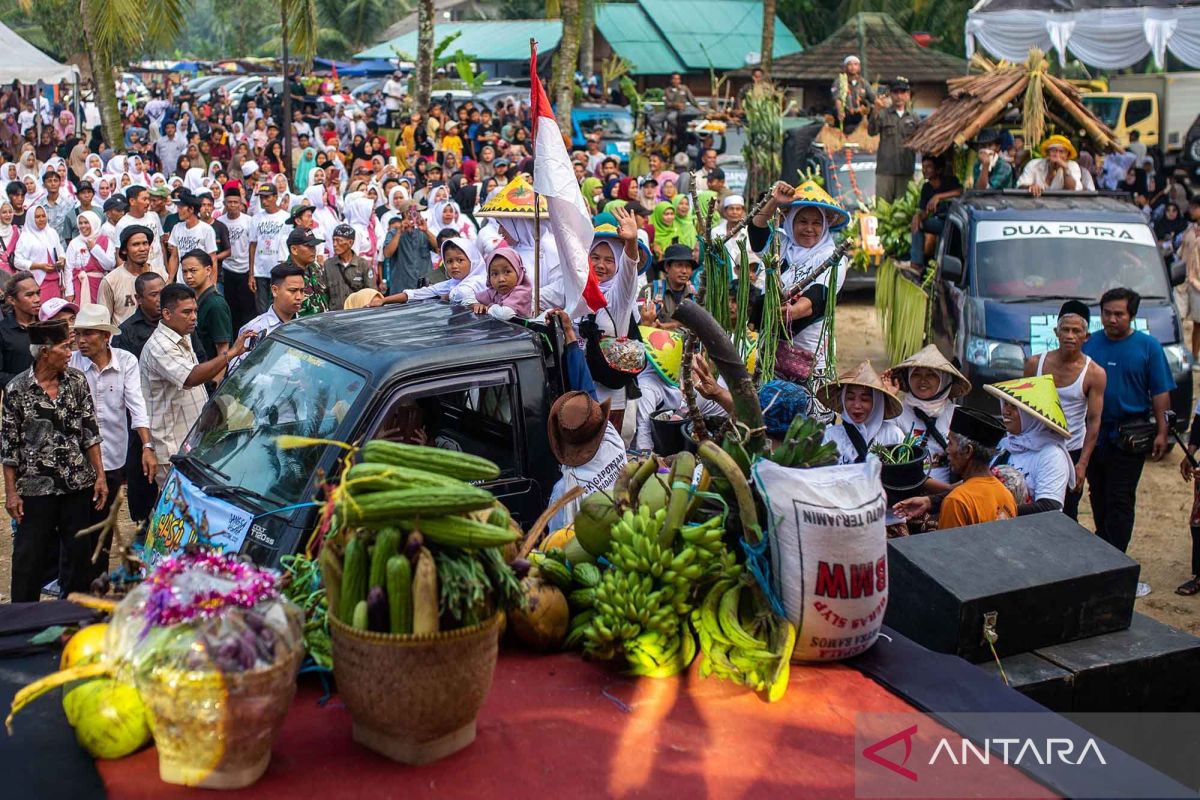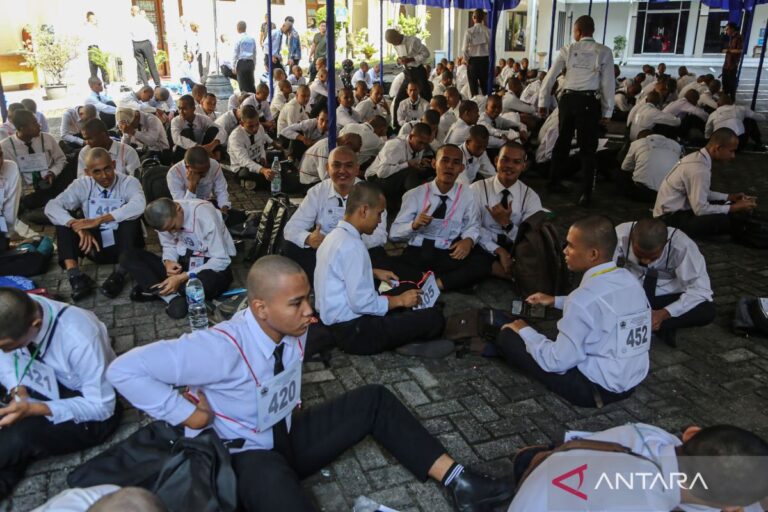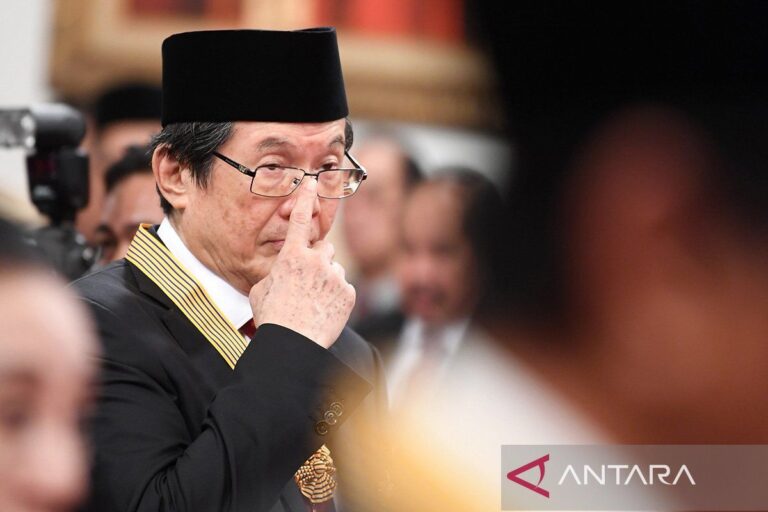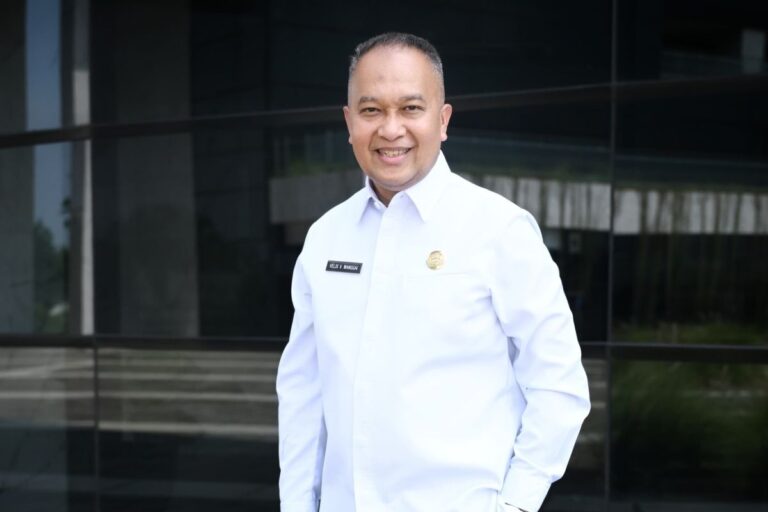
Jakarta (ANTARA) – Every October 16, the world commemorates World Food Day as a time for global reflection on the importance of providing sufficient, safe and nutritious food for all.
Each year, this commemoration features a different theme that highlights the challenges and opportunities of the global food system. In 2025, Food and Agriculture Organization (FAO) once again presents a theme relevant to current global conditions, highlighting the importance of collaboration, innovation and sustainability in addressing the food crisis and climate change.
This theme is a call to all countries to strengthen food security, support small farmers and ensure that no one is left behind in the effort to create a world without hunger.
So, what is the real theme of World Food Day 2025? The following is a comprehensive review of the World Food 2025 theme and World Food Day forum, summarized from various sources.
Read also: World Food Day, let’s join hands to build food
World Food Day 2025 theme
On the occasion of World Food Day 2025, Food and Agriculture Organization (FAO) carries forward the theme “Hand in hand for better food and a better future” or in Indonesian means “Joining hands for better food and a better future”.
Through this theme, FAO wants to highlight the importance of global cooperation to create a higher quality and more sustainable food future. Collaboration between the state, farmers, the private sector and society is considered the main factor in addressing various current global challenges, such as climate change and the food crisis. Every individual, no matter how small their role, has an important contribution to make so that no one else goes hungry.
FAO also highlighted the inequality that still exists in the global food sector. On the one hand, approximately 673 million people still live in conditions of hunger, while on the other, cases of obesity and food waste continue to increase.
This condition demonstrates that the global food system is not yet functioning in balance. Abundance and deficiency often exist side by side. Furthermore, the agri-food system is one of the largest contributors to greenhouse gas emissions. However, despite these challenges, this sector also has great potential to reduce emissions through innovation in how food is grown, harvested and distributed.
With the world’s population continually increasing, FAO emphasizes that efforts to meet global food needs cannot be done alone. Cross-border, cross-sector and intergenerational cooperation is needed for the world’s food future to be more equitable and sustainable.
This year the commemoration of World Food Day represents a special moment also because it coincides with the 80th anniversary of FAO, an institution founded in 1945 and which continues to be committed to the fight against world hunger.
Read also: World Food Day for Asta Cita
World Food Forum 2025
World Food Forum (World Food Forum/WFF) was established in 2021 as a network of independent partners under the aegis of the Food and Agriculture Organization (FAO) of the United Nations.
This forum functions as a global forum that focuses on efforts to create a better agri-food system and accelerate the achievement of the Sustainable Development Goals (SDGs).
Through the role of younger generations, science, innovation and investment, WFF seeks to open new lines of collaboration between sectors to create a real impact on food security at local, regional and global levels. The goal is to build a sustainable, resilient, inclusive and hunger-free future.
This year the main event World Food Forum 2025 will be held from 10 to 17 October at FAO headquarters in Rome, Italy, and will be broadcast online. The forum will bring together international experts, young innovators and visionary leaders from various generations under the theme “Joining Hands for Better Food and a Better Future”. This theme is also a form of respect for the 80th anniversary of FAO.
The main focus of this year’s activities is the “Four Better” concept, i.e.: better production, better nutrition, better environment and better life. These four pillars become the direction and guidance for every discussion, initiative and commitment built during World Food Week.
One of the key moments in this series of events was the inauguration of the FAO Food and Agriculture Museum and Network (MuNe) on 16 October 2025. This initiative reflects the “Better Four” vision and is aligned with the FAO Strategic Framework 2022-2031, designed to drive global progress towards more equitable, sustainable and innovative agri-food systems.
Read also: Farmers’ Day, PDIP focuses on innovation for food sovereignty
Read also: Deputy Minister of Agriculture: Pancasila values are the basis for achieving food sovereignty
Reporter: Sean Anggiatheda Sitorus
Publisher: Suryanto
Copyright © ANTARA 2025
Automatic retrieval of content, crawling or indexing by artificial intelligence on this website is strictly prohibited without written permission from ANTARA news agency.



